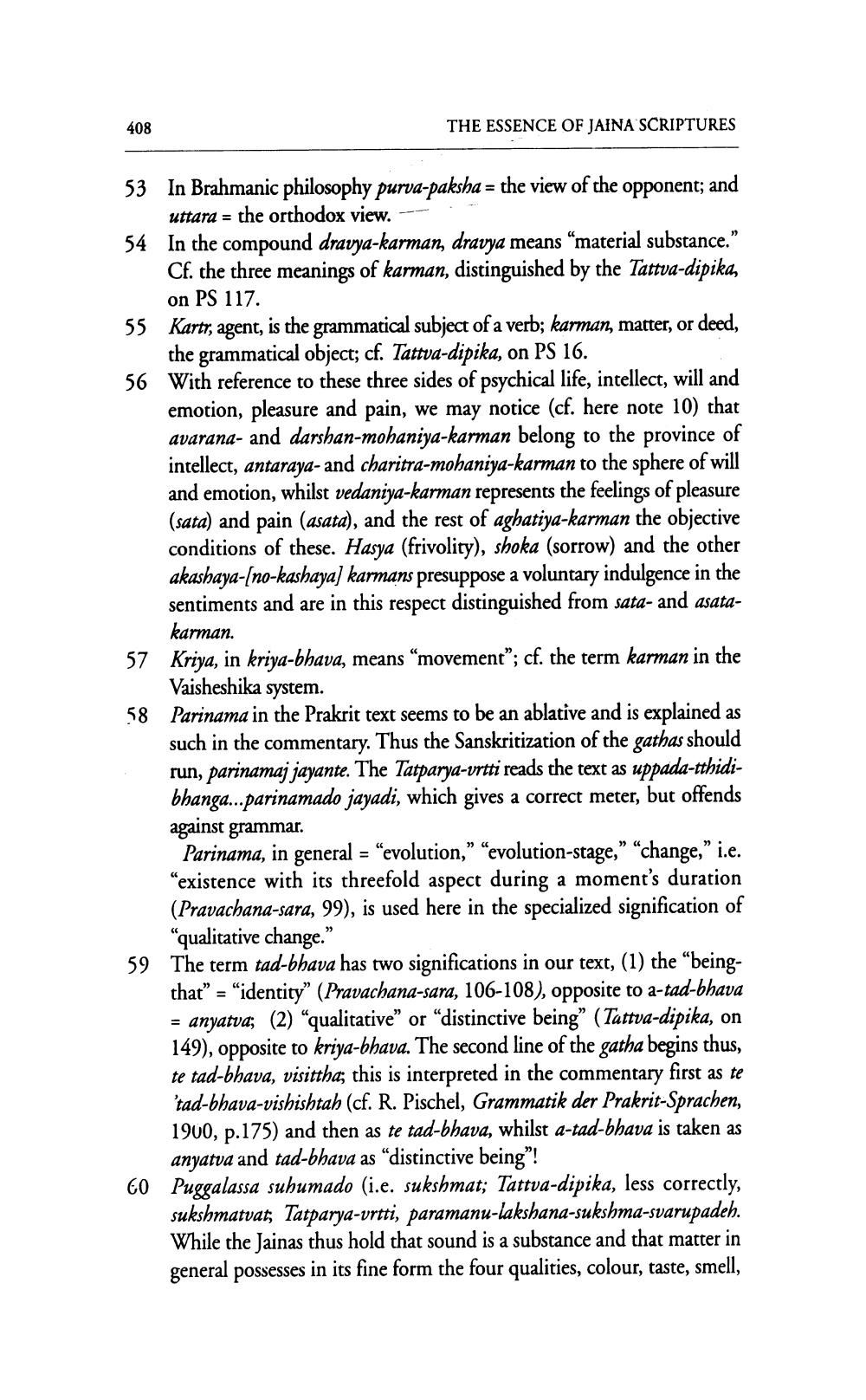________________
408
THE ESSENCE OF JAINA SCRIPTURES
53 In Brahmanic philosophy purva-paksha = the view of the opponent; and
uttara = the orthodox view. —54 In the compound dravya-karman, dravya means “material substance.”
Cf. the three meanings of karman, distinguished by the Tattva-dipika,
on PS 117. 55 Kartr, agent, is the grammatical subject of a verb; karman, matter, or deed,
the grammatical object; cf. Tattva-dipika, on PS 16. 56 With reference to these three sides of psychical life, intellect, will and
emotion, pleasure and pain, we may notice (cf. here note 10) that avarana- and darshan-mohaniya-karman belong to the province of intellect, antaraya- and charitra-mohaniya-karman to the sphere of will and emotion, whilst vedaniya-karman represents the feelings of pleasure (sata) and pain (asata), and the rest of aghatiya-karman the objective conditions of these. Hasya (frivolity), shoka (sorrow) and the other akashaya-[no-kashaya] karmans presuppose a voluntary indulgence in the sentiments and are in this respect distinguished from sata- and asata
karman. 57 Kriya, in kriya-bhava, means “movement”; cf. the term karman in the
Vaisheshika system. 58 Parinama in the Prakrit text seems to be an ablative and is explained as
such in the commentary. Thus the Sanskritization of the gathas should run, parinamaj jayante. The Tatparya-vrtti reads the text as uppada-tthidibhanga...parinamado jayadi, which gives a correct meter, but offends against grammar.
Parinama, in general = “evolution,” “evolution-stage," "change," i.e. "existence with its threefold aspect during a moment's duration (Pravachana-sara, 99), is used here in the specialized signification of
"qualitative change.” 59 The term tad-bhava has two significations in our text, (1) the “being
that” = “identity” (Pravachana-sara, 106-108), opposite to a-tad-bhava = anyatva; (2) "qualitative” or “distinctive being” (Tattva-dipika, on 149), opposite to kriya-bhava. The second line of the gatha begins thus, te tad-bhava, visittha; this is interpreted in the commentary first as te 'tad-bhava-vishishtah (cf. R. Pischel, Grammatik der Prakrit-Sprachen, 1900, p.175) and then as te tad-bhava, whilst a-tad-bhava is taken as
anyatva and tad-bhava as distinctive being! 60 Puggalassa suhumado (i.e. sukshmat; Tattva-dipika, less correctly,
sukshmatvat, Tatparya-vrtti, paramanu-lakshana-sukshma-svarupadeh. While the Jainas thus hold that sound is a substance and that matter in general possesses in its fine form the four qualities, colour, taste, smell,




